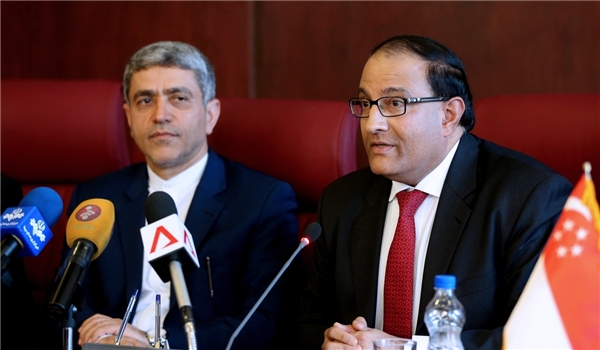By James Eugene
Foreign investors and nations have been actively exploring business and investment opportunities with Iran after economic sanctions were lifted from the Middle Eastern nation in January.
Asia
Over the past few months, there has been a sharp increase in the number of Asian countries that have ratified investment agreements with Iran.
Japan managed to negotiate an investment agreement at the beginning of February with the aim to strengthen bilateral ties, becoming the third agreement made between the two countries and the first economic agreement “since the establishment of the Islamic Republic of Iran”, according to Iran’s Minister of Economic Affairs and Finance Ali Tayebnia. Alongside economic cooperation, nuclear safety will also be a top priority when both Japan and Iran cooperate in the future.
A Bilateral Investment Treaty (BIT) was signed by Singapore and Iran at the end on February with the goal of promoting bilateral trade and investment between both countries. Singapore companies in multiple industries such as transport, oil & gas and petrochemicals have all expressed an interest in investing in Iran since sanctions were lifted. According to Shanghai Daily, Iran was Singapore’s 11th largest tradings partner in 2015 out of 18 countries in the Middle East, so the BIT could potentially move Iran up the list in the next few years.

Negotiations between Iran and Singapore have been successful (source: farsnews.com)
According to Reuters, two Chinese firms are in the process of making multi-billion dollar deals with Iran in its railway and shipping industries. China National Transportation Equipment & Engineering Co Ltd (CTC) is close to signing a $3 billion high-speed rail project to connect Tehran to the northeastern city of Mashhad; while Dalian Shipbuilding Industry Co is currently discussion the possibility of building container sips and oil tankers for Iran. China is currently Iran’s largest trading partner and both have agreed to increase bilateral trade tenfold within the next decade.
In a strategic move to open up a trade route to Afghanistan, India finally approved a $150 million deal to develop Iran’s Chabahar port. Although the agreement was signed last year, it was only confirmed towards the end of February and will see India operate two berths in the port during its development, with the aim of commencing operations within the next 18 months.
Han Hung Son, Head of South Korean KB Regional Group in UAE, has hinted that major Korean companies are lining up to invest in Iran. He claimed that Iran’s “unique location in the region is a good medium for foreign economic activists and investors, particularly South Koreans”.
Europe
European nations have also shown a strong desire to invest in Iran.
For example, Russia and Iran had previously agreed to launch a joint bank for investment in trade and economic projects, with the initial capital projected to be around $500 million. The bank will also allow both countries to exchange money using their local currencies – rubles and rials – without the need for dollars, euros or sterling, according to Assadollah Asgaroladi, the Chairman of the Iran-Russia Joint Chamber of Commerce.
Tehran Approves Russian-Iranian Joint Bank http://t.co/SEqwg4PjPK pic.twitter.com/kFAtOuAFy2
— EMerging Equity (@EMequity) November 19, 2015
For a few European nations, medicine seems to be one of the key areas that companies wish to invest in. For example, Switzerland’s multinational pharmaceutical company Chemo signed an agreement with Iran’s Barakat Pharmend Investment Company to produce hormone medicines, with the Swiss company taking a 65% stake of the investment in the joint venture. The transcontinental nation of Azerbaijan has also decided to invest in medicine, with the intention to stump up around 35 million euros ($38.87 million) to construct a pharmaceutical factory in Azerbaijan’s Sumgayit city. The factory aims to produce a range of drugs for various antibiotics and painkillers for various diseases.
The United Kingdom has reportedly been interested in holding investment talks in regards to Iran’s oil industry; while French airline Airbus signed a $25 billion agreement with the Middle Eastern nation to purchase a full range of Airbus airliners in an attempt to modernise Iran’s commercial aviation sector.
What about the United States?
Despite interest from many investors in the US, the country as a whole is finding it difficult to trade with Iran due to sanctions remaining while issues such as human rights and terrorism are discussed. In the short term it doesn’t seem likely that the two sides will come to an agreement, especially after the US plans to sanction China’s telecommunications firm ZTE for trading with Iran, which was allegedly made possibly by bypassing restrictions to trade. The frosty relations may thaw in the future however, depending on who wins the upcoming elections.




Discussion
No comments yet.